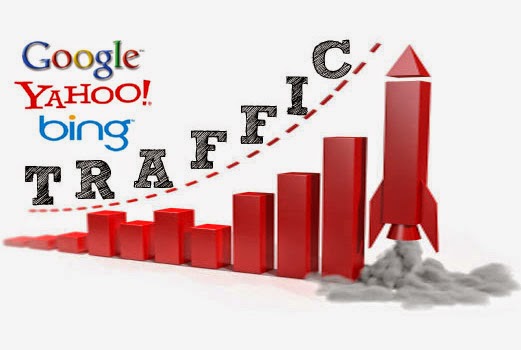In the present web situation, after
Penguin, Panda and Hummingbird, link building has lost the happiness it had
inside the past. The special effects of the new variations in program ranking
wants are that link building isn’t a very important principle any longer. Link
building could be a fixed thanks to create traffic, however it’s not the single
possibility you’ve got and in my belief isn’t a very essential one anyway.
So for those of you United Nations agency adopt that ranking starts and ends with link building, I’ve written some ways that within which you’ll produce traffic to your website while not link building and disrespectful the program indicators set by Google
1 Content Rules
In malice of all the new advances in
SEO skills and social networking techniques, the single issue that is still
unbroken is quality content. This can be the ultimate word thanks a lot to gain
traffic and recall them too. Information proves that excellence content will
growth the traffic rate to over 100 percent.
2 Optimize Content
This is an essential half that I’d
advise you to focus a lot of on. Some techniques that inside which you are
responsibility this is:
Eye catching titles that attraction each the audience and hence the search engines. The keyword must to be at the start of the title.
The overview and finish note should to be exciting and well related with the subject you’re script regarding.
3 Add correct heading, sub heading, and embrace pictures fitly.
Meta description is for the search engines. Check it’s around a hundred and fifty words. For Meta keywords, use the Google Keyword Planner tool then in conclusion improve the Meta tags even if this can be not being employed as a principle by Google for ranking.
3 Website style
If your web site isn’t mobile responsive, you’re losing out a huge amount of traffic. i believe even a lot of energetic than the responsive style is that the loading time. this can be a quick marched world we tend to sleep in. nobody goes to join until your website takes its own sweet time to load. However you feature enjoyable content, if it doesn’t lade shortly, you can’t drive traffic to your website.
4 Give Priority to Audience
All you are doing from the Google+ pictures you create to the content you post should to be targeted at your audience. I’d advice agreeing within the international audience too, after you post your content and optimize it. conjointly accept in mind that Google+ and Google search are linked and therefore something you post on Google + are seen in Google search, however not thus with the posts on Twitter or Facebook.
5 Promote through Videos
Video promotion could be a good way to need traffic to your website. Video sharing sites like YouTube are the self-effacing tools to draw traffic. Create your own YouTube channel with a sexy name that’s linked with your position. Assignment your video, optimize it, and provides the suitable tags, description and titles. The link to your website are often shared here, thus guests get focused back to your web site.
6 Snippets Add charm
Videos stay the simplest issue for realization the search results page. After you extra optimize the videos with wastes of data like events, songs etc., you’ll produce organic guests with fewer bounce rates. Songs, videos, events, and breadcrumbs are showed by Google methodically, thus you’ve got a tougher likelihood of obtaining hierarchic higher and take the traffic to your website.
10 Update often
There is no reply of this. you would like to stay conversion your website with modern and attractive content. Search engines approval sites that update often. Your {site|website|web website} becomes bonus points and changes up the list within the search effects that is though you get a lot of traffic to your site. If you don’t modernize oftentimes, your content can become retired and therefore the visitors to your website can drop. Changes are often in any kind like situation statements or news, thus a traveller sees some action in your website.






